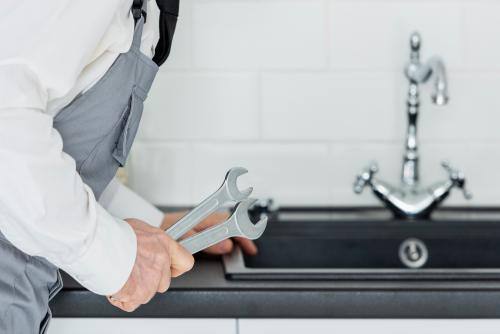Signs You Need Water Main Repair: Early Detection Tips


Water main issues can cause significant disruptions
and damage if not addressed promptly. As the primary conduit for water into
your home, the water main is crucial for your daily water needs. Identifying
early signs of problems can save you from costly repairs and potential water
damage. Here are some key indicators that you might need water main repair and
tips on detecting them early.
1. Unusually High-Water Bills
One of the most common signs of a water main
problem is a sudden increase in your water bill without a corresponding
increase in water usage. If your water bill spikes unexpectedly, it might
indicate a leak in the water main. Leaks can cause water to be lost
underground, leading to higher consumption readings and increased costs.
Detection Tip: Monitor your water bill monthly and compare
it to previous months. If you notice a significant and unexplained increase,
it's time to investigate further.
2. Water Discoloration
Discolored water is another red flag. If the water
coming from your taps is brown, rusty, or yellowish, it could mean that your
water main is corroded or that sediment is entering the supply. This affects
the quality of your water and indicates potential damage to your water main.
Detection Tip: Regularly check the color of the water in a
clear glass. If you notice any discoloration, especially if it persists,
contact a professional to inspect your water main.
3. Decreased Water Pressure
A noticeable drop in water pressure can indicate a
water main leak or blockage. If the pressure is low across all faucets and
fixtures in your home, it's more likely to be an issue with the main line
rather than individual fixtures.
Detection Tip: Use a water pressure gauge to measure the
pressure at various points in your plumbing system. Consistently low readings
can indicate a problem with the water main.
4. Damp Spots in the Yard
Leaks in the water main can cause water to seep
into the ground, resulting in damp or unusually green patches in your yard. It
might be due to an underground leak if you notice wet spots or areas where the
grass is lusher than the surrounding areas.
Detection Tip: Inspect your yard regularly, especially after
dry weather. Look for soggy areas or unexplained patches of green grass, which
can signal a leak beneath the surface.
5. Strange Noises in the Plumbing
Unusual sounds, such as hissing, gurgling, or
bubbling, coming from your plumbing can indicate a leak or damage in the water
main. These noises occur as water escapes through a crack or hole in the pipe.
Detection Tip: Listen for these sounds when the house is
quiet, and the water is turned off. If you hear anything unusual, it's wise to
have a professional check it out.
6. Foundation Cracks and Water Damage
Water main leaks can lead to severe structural
damage if water seeps into your home's foundation. Over time, the water can
cause cracks in the foundation, damp walls, or even flooding in the basement.
Detection Tip: Regularly inspect your basement and
foundation for any signs of moisture, cracks, or water stains. Pay attention to
musty odors, which can also indicate water intrusion.
7. Poor Water Quality
If you notice a change in your water's taste,
smell, or appearance, it could be due to contamination from a damaged water
main. Contaminants can enter through cracks and affect your water supply.
Detection Tip: Conduct regular water quality tests. If you
detect any changes or if your water tastes or smells off, it could be a sign of
a problem with the water main.
What to Do If You Detect a Problem
If you identify any of these signs, acting quickly
is crucial. Here are the steps you should take:
- Turn
Off the Water Supply: If
you suspect a significant leak, turn off the main water valve to prevent
further damage.
- Contact
a Professional: Call
a licensed plumber specializing in water central repairs. They can perform
a thorough inspection and confirm if there is an issue.
- Document
the Problem: Take
notes and photos of any signs of damage or unusual occurrences. This can
be useful for the plumber and for any potential insurance claims.
- Prevent
Further Damage: Follow
any advice the plumber gives to mitigate further issues until the repair
can be completed.
Preventive Measures
To avoid water main problems in the future,
consider the following preventive measures:
- Regular
Inspections: Schedule
periodic inspections of your water central and plumbing system by a
professional.
- Monitor
Water Usage: Monitor
your water bills and usage patterns.
- Winter
Precautions: Insulate
exposed pipes and the water main to prevent freezing during cold weather.
- Upgrade
Aging Pipes: If
your water main is old or made from outdated materials, consider upgrading
to more durable options.
Conclusion
Being proactive and attentive to the early signs of
water main issues can save you from significant hassle and expense. Regular
monitoring, quick action, and preventive maintenance ensure your water main
remains in good condition. If you detect any of the signs mentioned above,
don't hesitate to contact a professional to address the problem promptly. Your
vigilance can protect your home and ensure a reliable water supply for years.

Comments